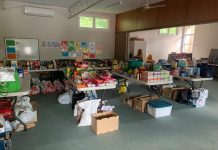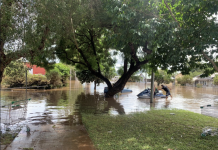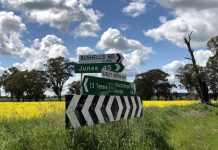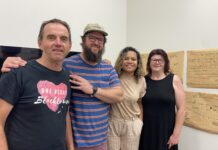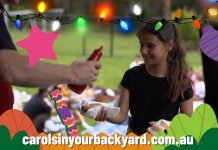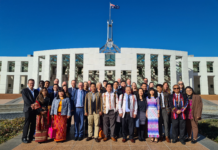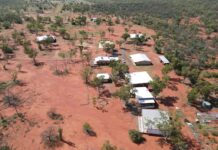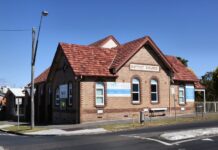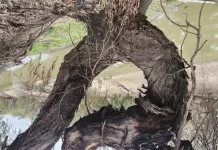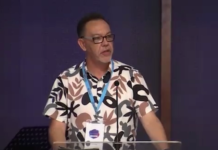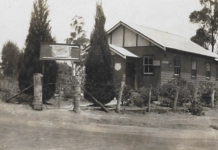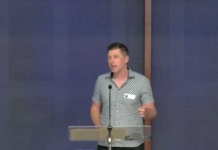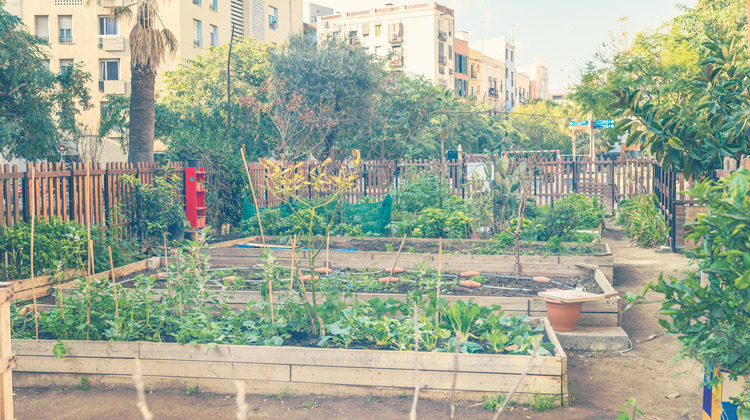
At the start of 2016, John Beckett reflected on the unfenced garden metaphor as a way of thinking about how Christians engage with society (original article found here http://togethermagazine.com.au/2016/03/02/an-unfenced-garden-in-the-wilderness/). In 2016 the Baptist Association continued to build a framework around public engagement, identifying some key issues and providing resources for churches to engage their congregations in prayer and action.
Now that we are at the beginning of 2017, it is a good time to think back to this garden metaphor and remind ourselves of the theology and vision that guide our involvement with the hurts of our neighbourhoods.
I was recently brought on as a Public Engagement Coordinator for the Baptist Association and have been reflecting upon what has shaped my own understanding of community engagement. As a young person attending a Christian liberal arts college in the U.S., the idea of good news and good works woven together was foundational to my education. The school had a Brethren in Christ background and Anabaptist, Pietist and Wesleyan roots. “If you want to know if I’m a Christian, you should ask my neighbour” was commonly referred to at my Brethren in Christ church. There was a strong emphasis on reconciliation and peace. Even within the science degree I was pursuing, there was an understanding that “we serve because God calls us to open our hearts to the poor and needy and to work for justice wherever injustice prevails.”
After graduating, I moved to Pittsburgh to study Public Health and upon completion of my Master’s degree I began working within low income neighbourhoods in a variety of roles. I built relationships with refugees and immigrants and helped them navigate through their new city and its intricacies. I then worked for a Food Bank delivering nutrition education programs at food pantries and farm stands in urban neighbourhoods. I often felt out of touch and inadequate, but I always felt called, and always had a strong sense that through my work I was building relationships and helping to restore justice, doing work that demonstrated God’s kingdom. I was learning, I was growing, and I was changing. I experienced God more deeply and I began to understand more about the complexities of poverty and injustice. I’m thankful for the reality and the beauty of the neighbourhoods I worked in and how the experience smacked my preconceived notions about life in the face.
In John’s description of the unfenced garden in the wilderness, we are given a picture where there is distinction between the garden and the wilderness, yet no fence separates the garden from the wilderness – or the church from society. There are patches of the garden in the wilderness and there are weeds that have made their way into the garden. I like this picture but would like to extend the metaphor to an unfenced garden amongst the concrete lots. I have done a bit of work with urban gardening, teaching gardening skills and nutrition to children in low income neighbourhoods. The idea of a garden in the wilderness speaks to me but so does the thought of a communal garden nestled among the abandoned lots of a run down neighbourhood.
In the work I did, before planting we had to pull people together, people who had a similar vision. We had to test the soil to see if something would grow. We began to beautify the space by hanging murals and creating a zone for the garden without the need for a fence. We chose what to plant based upon the growing season. We planted our seeds and it was ok that the garden was messy; the rows weren’t perfect and neither were we. Our relationship building and community engagement didn’t have to be clean and orderly but it did have to have vision and purpose. Even though we were ok with a bit of imperfection in the garden we had to weed, we had to prune, we had to water or we would have no fruit and no one would really want to see what was happening. We needed to invest in it and we needed community buy-in.
We had to use words. The garden didn’t just stand for itself. It wasn’t only something that people came to admire, it was a place to gather and work together. If we didn’t use words, how would our neighbours know that they could join us in tending the garden and that they could eat of the harvest?
I have been very influenced by this idea of “Good News and Good Works”. We have to care about justice in our communities but we must also share our love of Christ and the way that we have been transformed through the power of the Holy Spirit. We also can’t just speak the gospel message. When Christ came, he healed, he restored, and he reconciled. If as Christians we are not doing these things as well, we are not giving the full picture of Christ’s kingdom come on earth. If I’ve been transformed by Christ then I also want the transformation of my community, my state and my country. It isn’t a “pie in the sky by and by”. It is pie for now, preferably pumpkin but that is another story.
Speaking of food, the garden in the metaphor produces something. It feeds us. There is productivity. It accomplishes something beyond its attractiveness. People eat of it and they are nourished. Our interactions with the community should aim to be productive as well. Change should happen, hunger should go away, bodies should be nourished with nutrients and vitamins and they should work properly again.
Little by little and block by block, the neighbourhood changes. Abandoned lots become fruitful. Community gathers where it once wouldn’t. People come out of their homes to this new safe zone and work alongside one another. There is a sense of responsibility to the land. Dinners are made, recipes shared, those who were isolated are brought into community again, young learn from old and minds are healed. And let us not forget that people come to Christ. Lives and communities are transformed.
This year the Public Engagement Group aims to walk alongside churches as they engage with their communities. It aims to equip them where needed and offer resources for some overarching campaigns that we can all be involved in together. For more information and to view our calendar, please visit https://nswactbaptists.org.au/public-engagement/.

